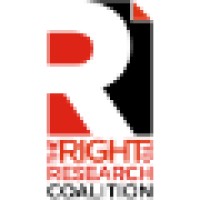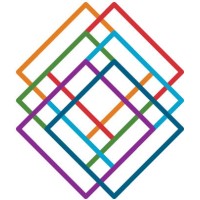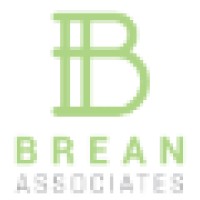Company Details
the-right-to-research-coalition
None employees
77
921
righttoresearch.org
0
THE_2463416
In-progress

The Right to Research Coalition Company CyberSecurity Posture
righttoresearch.orgFounded by students in the summer of 2009, the Right to Research Coalition is an international alliance of 31 undergraduate and graduate student organizations, representing nearly 7 million students, that promotes a more open scholarly publishing system. The Right to Research Coalition believes that no student should be denied access to the scholarly articles they need, because they or their institution cannot afford access. The coalition works to educate the next generation of scholars and researchers about Open Access and to advocate for policies at the campus, national, and international levels that expand access to the results of research.
Company Details
the-right-to-research-coalition
None employees
77
921
righttoresearch.org
0
THE_2463416
In-progress
Between 700 and 749

 RRC Global Score (TPRM)
RRC Global Score (TPRM)XXXX



No incidents recorded for The Right to Research Coalition in 2025.
No incidents recorded for The Right to Research Coalition in 2025.
No incidents recorded for The Right to Research Coalition in 2025.
RRC cyber incidents detection timeline including parent company and subsidiaries

Founded by students in the summer of 2009, the Right to Research Coalition is an international alliance of 31 undergraduate and graduate student organizations, representing nearly 7 million students, that promotes a more open scholarly publishing system. The Right to Research Coalition believes that no student should be denied access to the scholarly articles they need, because they or their institution cannot afford access. The coalition works to educate the next generation of scholars and researchers about Open Access and to advocate for policies at the campus, national, and international levels that expand access to the results of research.

The Fort Collins Area Chamber of Commerce is recognized as the bold and influential leader for business in Northern Colorado. Our Mission: The Fort Collins Area Chamber of Commerce is the influential business leader which ensures an economically vibrant and livable region. Core Values: The co

Dēmos is a non-profit public policy organization working to build a just, inclusive, multiracial democracy and economy. We work hand in hand to build power with and for Black and brown communities, forging strategic alliances with grassroots and state-based organizations. For nearly 25 years, Dēmos

The Australian Institute of Policy and Science (AIPS) is an independent not-for-profit organisation first established in 1932 that aims to bring science, people and policy, community and industry actors closer together to encourage engagement and informed debate on key current issues in Australia an

The Foundation for Government Accountability promotes better lives for individuals and families by equipping policymakers with principled strategies to replace failed health and welfare programs nationwide. Our core principles include transparency, private enterprise, individual liberty and limited,

MAMH is a public policy and legislative advocacy organization formed a century ago whose mission is to advance mental health and well being by promoting prevention, early intervention, effective treatment, and research to address social, emotional, and mental health challenges. MAMH works to elimina

Brean Associates, founded in 1996, is an alliance of experienced professionals specializing in planning, urban design, community development, project management, program implementation, and public participation. Our approach is collaborative and comprehensive. We see connectivity and work hard to b
.png)
The signed organizations and individuals write to respond to the California Privacy Protection Agency's May 9, 2025, request for comments on the most recent...
From private browsers to data removal tools and all-in-one privacy suites, these programs let you take back some control of your digital footprint.
The Commonwealth Cyber Initiative exceeds expectations, tripling the amount of cybersecurity research funding that comes into Virginia in...
This report illustrates how collective action on cyber defense can be put into practice to achieve increased cybersecurity.
WHO announces it is the first of the United Nations agencies to join a coalition of research funders and charitable foundations (cOAlition S).

Explore insights on cybersecurity incidents, risk posture, and Rankiteo's assessments.
The official website of The Right to Research Coalition is http://www.righttoresearch.org.
According to Rankiteo, The Right to Research Coalition’s AI-generated cybersecurity score is 745, reflecting their Moderate security posture.
According to Rankiteo, The Right to Research Coalition currently holds 0 security badges, indicating that no recognized compliance certifications are currently verified for the organization.
According to Rankiteo, The Right to Research Coalition is not certified under SOC 2 Type 1.
According to Rankiteo, The Right to Research Coalition does not hold a SOC 2 Type 2 certification.
According to Rankiteo, The Right to Research Coalition is not listed as GDPR compliant.
According to Rankiteo, The Right to Research Coalition does not currently maintain PCI DSS compliance.
According to Rankiteo, The Right to Research Coalition is not compliant with HIPAA regulations.
According to Rankiteo,The Right to Research Coalition is not certified under ISO 27001, indicating the absence of a formally recognized information security management framework.
The Right to Research Coalition operates primarily in the Public Policy Offices industry.
The Right to Research Coalition employs approximately None employees people worldwide.
The Right to Research Coalition presently has no subsidiaries across any sectors.
The Right to Research Coalition’s official LinkedIn profile has approximately 77 followers.
The Right to Research Coalition is classified under the NAICS code 921, which corresponds to Executive, Legislative, and Other General Government Support.
No, The Right to Research Coalition does not have a profile on Crunchbase.
Yes, The Right to Research Coalition maintains an official LinkedIn profile, which is actively utilized for branding and talent engagement, which can be accessed here: https://www.linkedin.com/company/the-right-to-research-coalition.
As of November 27, 2025, Rankiteo reports that The Right to Research Coalition has not experienced any cybersecurity incidents.
The Right to Research Coalition has an estimated 1,026 peer or competitor companies worldwide.
Total Incidents: According to Rankiteo, The Right to Research Coalition has faced 0 incidents in the past.
Incident Types: The types of cybersecurity incidents that have occurred include .
.png)
Angular is a development platform for building mobile and desktop web applications using TypeScript/JavaScript and other languages. Prior to versions 19.2.16, 20.3.14, and 21.0.1, there is a XSRF token leakage via protocol-relative URLs in angular HTTP clients. The vulnerability is a Credential Leak by App Logic that leads to the unauthorized disclosure of the Cross-Site Request Forgery (XSRF) token to an attacker-controlled domain. Angular's HttpClient has a built-in XSRF protection mechanism that works by checking if a request URL starts with a protocol (http:// or https://) to determine if it is cross-origin. If the URL starts with protocol-relative URL (//), it is incorrectly treated as a same-origin request, and the XSRF token is automatically added to the X-XSRF-TOKEN header. This issue has been patched in versions 19.2.16, 20.3.14, and 21.0.1. A workaround for this issue involves avoiding using protocol-relative URLs (URLs starting with //) in HttpClient requests. All backend communication URLs should be hardcoded as relative paths (starting with a single /) or fully qualified, trusted absolute URLs.
Forge (also called `node-forge`) is a native implementation of Transport Layer Security in JavaScript. An Uncontrolled Recursion vulnerability in node-forge versions 1.3.1 and below enables remote, unauthenticated attackers to craft deep ASN.1 structures that trigger unbounded recursive parsing. This leads to a Denial-of-Service (DoS) via stack exhaustion when parsing untrusted DER inputs. This issue has been patched in version 1.3.2.
Forge (also called `node-forge`) is a native implementation of Transport Layer Security in JavaScript. An Integer Overflow vulnerability in node-forge versions 1.3.1 and below enables remote, unauthenticated attackers to craft ASN.1 structures containing OIDs with oversized arcs. These arcs may be decoded as smaller, trusted OIDs due to 32-bit bitwise truncation, enabling the bypass of downstream OID-based security decisions. This issue has been patched in version 1.3.2.
Suricata is a network IDS, IPS and NSM engine developed by the OISF (Open Information Security Foundation) and the Suricata community. Prior to versions 7.0.13 and 8.0.2, working with large buffers in Lua scripts can lead to a stack overflow. Users of Lua rules and output scripts may be affected when working with large buffers. This includes a rule passing a large buffer to a Lua script. This issue has been patched in versions 7.0.13 and 8.0.2. A workaround for this issue involves disabling Lua rules and output scripts, or making sure limits, such as stream.depth.reassembly and HTTP response body limits (response-body-limit), are set to less than half the stack size.
Suricata is a network IDS, IPS and NSM engine developed by the OISF (Open Information Security Foundation) and the Suricata community. In versions from 8.0.0 to before 8.0.2, a NULL dereference can occur when the entropy keyword is used in conjunction with base64_data. This issue has been patched in version 8.0.2. A workaround involves disabling rules that use entropy in conjunction with base64_data.

Get company history
















Every week, Rankiteo analyzes billions of signals to give organizations a sharper, faster view of emerging risks. With deeper, more actionable intelligence at their fingertips, security teams can outpace threat actors, respond instantly to Zero-Day attacks, and dramatically shrink their risk exposure window.
Identify exposed access points, detect misconfigured SSL certificates, and uncover vulnerabilities across the network infrastructure.
Gain visibility into the software components used within an organization to detect vulnerabilities, manage risk, and ensure supply chain security.
Monitor and manage all IT assets and their configurations to ensure accurate, real-time visibility across the company's technology environment.
Leverage real-time insights on active threats, malware campaigns, and emerging vulnerabilities to proactively defend against evolving cyberattacks.




